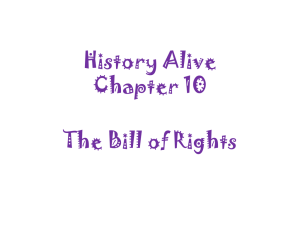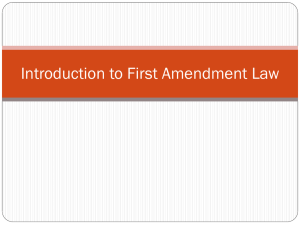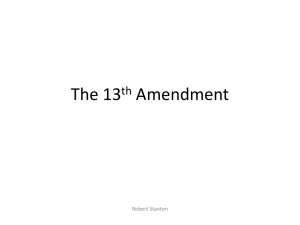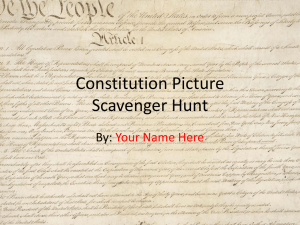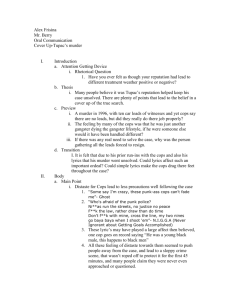Know Your Rights Outline (powerpoint)
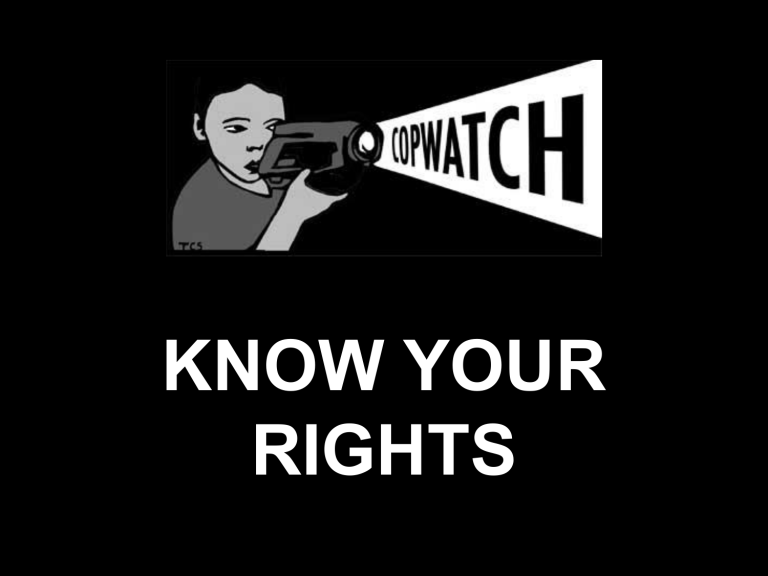
KNOW YOUR
RIGHTS
Know your basic rights
• 1st Amendment: you have the right to assemble
• 4th Amendment: protection against unreasonable search and seizure
• 5th Amendment: protection against selfincrimination
• 6th Amendment: you have the right to a speedy and public trial, you have the right to an attorney
• 8th Amendment: protection from excessive bail and cruel and unusual punishment
Three types of stops
1. Consensual- ask “Am I free to go?”
2. Detention- based on reasonable suspicion, required to tell name and address but otherwise don ’t talk, cops can pat search but do not consent to bag/pockets search.
Search clause: if you are a parolee, you may be searched.
3. Arrest- based on probable cause (evidence), this can be in the form of a citation or custody, you have the right to know why you are being arrested, you have the right to appear before a judge (habeus corpus).
Three types of violations
1. Infractions- fine only, right to a judge, no jury though
2. Misdemeanor- fine and/or jail up to a year, right to a judge and jury
3. Felony- fine and/or jail longer than a year
Three types of Police
Misconduct
1. Violations of Lawcorruption, excessive force
2. Violations of Policytasers, identity, each dept. has unique policies and procedures
3. Unjust Laws- antihomeless, selective enforcement (i.e. racial profiling)
QuickTime™ and a
decompressor are needed to see this picture.
Youth Rights
• Youth have the same rights protected in the Constitution
• Parent/guardian must be contacted within 1 hour of arrest
• Not required to consent to search
• Car/locker on school property is subject to search
Vehicles
• Don’t confess guilt
• “Plain view” protocol
• Role of officer discretion
• If they are asking for it, it means they need permission- just say NO!
• Can search car if the arrest is near and car may have evidence in it
Right to Watch
• P.C. 148-
Interfering/obstructing/delaying an officer on duty
• Right to watch- 1st Amendment
• Right to video- cops have no right/expectation of privacy
• P.C. 830.10- Cops must be identified by name or number
When Copwatching...
Do…
• Get badge #, dept., and name of officers
• Video/document incident, write narrative
• Speak with witnesses and get contact info
• Photograph/document injuries
• Keep calm, use polite language, slow movements, visibility to de-escalate
• Use California Public Records Act to get documents. Federal equivalent is Freedom of
Information Act (FOIA)
• Be an organizer
• Assert your rights!
When Copwatching
...
Don’t…
• Bring weapons/drugs
• Drink/use drugs
• Warn people cops are coming
• Run or move suddenly
• Videotape if victim doesn’t want you to
• Escalate the situation
• Interfere with police activity
• Conceal your hands
When Cops Abuse
• Police Review Commission
• Sue in Civil Court
• Criminal Charges
• Bad Publicity
• Community Organizing
• Copwatch
QuickTime™ and a
decompressor are needed to see this picture.


